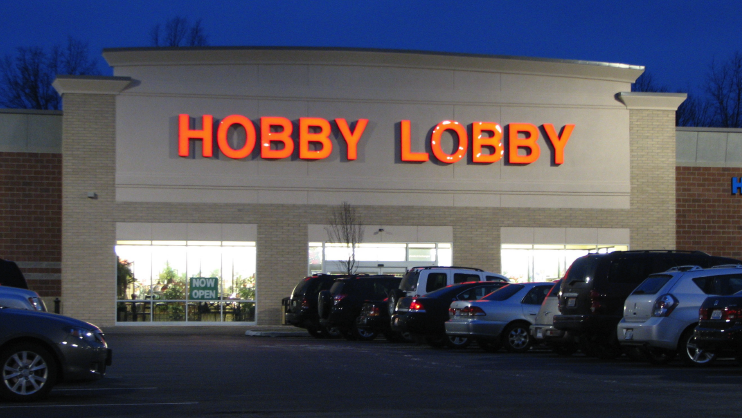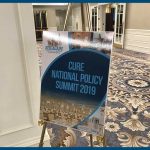There is no right more fundamental than the right to life.
Yet in 1973, the Supreme Court of the United States ruled that a woman’s right to privacy outweighs the rights of the preborn to live. Since then, over 60 million children have lost their lives to abortion.
On Jun 24, 2022, the U.S. Supreme Court reversed this detrimental decision and returned the power to the states to determine how to best protect moms and babies.
But in Kansas the situation has not changed. In 2019, the Kansas Supreme created an unlimited right to abortion. This puts at risk more than 20 lifesavings laws because every one is presumed unconstitutional. Kansas is already becoming an abortion destination.
The abortion industry lied to the people of Kansas and they rejected a constitutional amendment that would have returned the power to the people of Kansas to make laws around the abortion industry. Many Kansans are not content with this failure. We will not give up on the women or babies in our state.
We will continue to advance policies in Kansas to defend and promote the humanity of each life, which includes helping mothers choose life and protecting their health. We oppose policies that promote abortion, force taxpayers to pay for abortion, or require medical professionals and insurers to provide abortion services and coverage. Most importantly, we help train and equip the Church to advocate for life.

ABORTION DEFINED
Abortion refers to a voluntary medical procedure that is intended to end the life of a baby in the mother’s womb. There are two primary ways a woman can obtain an abortion.

PILLS
Chemical abortions are a two-step process: (1) a woman takes the first pill that blocks the baby from receiving progesterone; (2) 24 -72 hours later she takes the second pill that forces her to deliver the baby.

SURGERY
Surgical abortions are performed in two ways: (1) the baby is sucked out of the womb using a vacuum-like machine; (2) the baby is dismembered limb-by-limb in the womb.
The courts have established that states have the right to regulate abortion (in the interest of protecting the life of the baby), but cannot “place an undue burden” on a woman’s access to abortion before the baby becomes “viable” – which, due to medical advancements, is becoming earlier and earlier.
ABORTION LEGALIZED BY THE COURT, FOUGHT THROUGH LEGISLATION
In 1973, the Supreme Court invented a constitutional right to elective abortion in the major case known as Roe v. Wade. However, the legal march towards the Court’s creation of a fundamental right to abortion began almost a decade before the infamous Roe v. Wade ruling.
In 1965, the Court, in Griswold v. Connecticut, invented a “right to privacy in marriage” which permitted couples to buy contraceptives. This was then followed in 1972 by another case, Eisenstadt v. Baird, which extended privacy in marriage to individual personal privacy. While appearing harmless, these activist court opinions became the foundation for legalizing abortion under the guise of protecting a woman’s “privacy.”
Roe tied the hands of states so that they could not pass any laws to protect preborn children in the first trimester of pregnancy. During the second trimester of pregnancy, the state could only restrict abortion if the laws also protected the mother’s health. But states pushed back and took every opportunity to protect both the mother and her baby by passing pro-life laws.
In 1992, in challenge of the pro-life laws being passed, Planned Parenthood once again turned to the courts in Planned Parenthood v. Casey. It was widely expected that the Court would overturn Roe, but in the 11th hour, Justice Anthony Kennedy flipped his vote and in a 5-4 decision, the Court upheld Roe, but modified the rules. In Casey, the Court recognized that although women did have the right to have an abortion before the baby was viable (ability to survive outside the womb), the state still had an interest in protecting the life of both baby and mother throughout a pregnancy.
Casey allowed more opportunity for state legislatures to pass laws regulating abortion as long as those laws did not create an undue burden on a women’s ability to get an abortion. This rule is arbitrary and difficult to predict how courts will apply it, setting the stage for a patchwork of laws across the country.
Today, state legislatures continue to institute more and more protections for the preborn child and the mother. As a result, our nation is the most pro-life since 1973!
HOW DO WE CREATE A CULTURE OF LIFE?
There are several major strategies that Kansas Family Voice, our state and national allies, and many other pro-life advocates have been using to advance a culture of life in the states. These strategies typically fall into the following policy categories:
Enhance a Mother’s Right to Access Information About Abortion
The abortion industry feigns to give women a “choice” — yet they consistently oppose legislation that would give women more information about the abortion procedure they are “choosing.” Informed consent laws ensure women have access to information about the potential ramifications of an abortion, alternatives to abortion, that chemical abortions may be reversed, information about the abortionist performing the procedure, and more. Many states also require a 72-hour waiting period for a woman to consider her options before an abortion can be performed.
Eight states have already passed laws that require a woman be informed about chemical abortion reversal: Arizona, Arkansas, Utah, Idaho, South Dakota, North Dakota, Kentucky, and Oklahoma.
Watch this inspiring story on abortion reversal.
Week-Based Abortion Bans
Given the current legal understanding of Supreme Court opinions on abortion, week-based bans are becoming more common ways of limiting abortion. More than 20 states have already passed 20-week bans which prohibit abortions at the point where it is scientifically recognized that preborn babies feel pain. Most western countries — oftentimes considered more liberal than the United States — do not allow abortion beyond 24 weeks. By allowing abortions this late in pregnancy, we join the ranks of totalitarian nations like China and North Korea.
LAWS WE ARE WORKING ON IN 2023
- House Bill 2313: Creating the born-alive infants protection act to provide legal protections for infants who are born alive regardless of the intent of the delivery. Governor Kelly has vetoed the bill. It now heads back to both chambers where they will attempt to override the veto.
- Senate Bill 297: Clarifies what an abortion is and what it is not in our statutes. Governor Kelly has vetoed this bill and it will need to return to the House and Senate.
- House Bill 2264: Abortion Pill Reversal: requiring notification to patients that the effects of a medication abortion may be reversible. Gov. Kelly vetoed the bill. It now heads back to both chambers where they will attempt to override the veto.
- Senate Bill 96: Provides a tax credit for donations made to pregnancy centers. This bill passed the House and now heads to the Senate for consideration.
FAITH V. ABORTION
When state or federal government compels medical professionals to provide abortion services, insurers to cover elective abortions, or taxpayers to pay for other people’s abortions, the government violates Americans’ religious freedom.

FORCED ABORTIONS
Under federal law, the Trump Administration created a new rule to protect the conscience rights of the medical community including providing abortion services, but protection at the state level varies. Two states (Vermont and New Hampshire) do not have any protections for healthcare professionals from being forced to perform abortions or other procedures that violate their conscience. Read more about Religious Freedom in Healthcare

FORCED COVERAGE FOR ABORTION
When Obamacare became law, it mandated that employers provide contraceptive coverage — including drugs that can cause abortions — through their insurance. This mandate even applied to religious employers, such as the owners of Hobby Lobby who defended their religious freedom all the way up to the Supreme Court, where the Court upheld religious freedom for employers. Read more about Religious Freedom in Business

FORCED FUNDING OF ABORTION
The federal government does not allow federal Medicaid funds to be used to pay for abortions under the Hyde Amendment. Yet, state funds can still be used for abortions. State Medicaid funding often violates believers’ conscience rights by requiring government funding of elective abortions. Thankfully, several states have passed laws that defund abortion providers.
States can defund abortion providers in different ways — by the priority they give abortion providers in their federal Title X funds, in their state Medicaid funds, or in their state family-planning funds.
The Reality of Abortion Reversal vs. Pro-Abortion Lobby Fiction
A couple weeks ago, the U.S. District Court for the District of North Dakota took steps to limit the information given to women seeking chemical abortions. The North Dakota legislature enacted the Abortion Pill Reversal Information Act earlier this year, which requires that physicians inform women that in some cases it might be possible to
We Have to “Rise Again”
Dear Friends: This week, I was blessed to join pastors from across the country in Washington D.C. for CURE’s National Policy Summit. CURE is a non-profit think tank founded by Star Parker with a mission to fight poverty and restore dignity through the message of faith, freedom, and personal responsibility. The theme of this year’s
Trump Administration Moves to End Research on Aborted Babies
Last fall we alerted you that the Department of Health and Human Services (HHS) was allowing research to be done using aborted fetal tissue. In response to Kansas Family Voice® and other pro-life organizations, HHS ended their contract with Advanced Bioscience Resources (ABR) which was providing aborted fetal tissue. HHS promised to investigate their other
The Long Fight to Defend Life
This week the US 6th Circuit Court of Appeals will hear an important case dealing with whether a state can require that abortion facilities have a transfer agreement with an ambulance service. The law has been in place in Kentucky since 1998. So why would Planned Parenthood challenge a law that was in place for
A Democratic Governor for Life?
Dear Friends: On the heels of the signing of Georgia’s “heartbeat bill,” lawmakers in Louisiana are now poised to pass their own legislation to prohibit abortions on unborn babies with detectable heartbeats. Last Thursday, Louisiana Governor John Bel Edwards was publicly asked about the bill. Governor Edwards responded: “In eight years in the legislature, I was
Trump Administration Takes First Step, Cancels Contract for Aborted Baby Parts
By Brittany Jones, Esq. Last week, we told you about the letter that Kansas Family Voice – along with over 40 pro-life organizations – sent to Alex Azar, who heads the U.S. Department of Health and Human Services (HHS). We asked Secretary Azar to cancel a contract with Advanced Bioscience Resources that procured aborted baby
A Life Worth Living
By Brittany Jones, an attorney and policy manager with Kansas Family Voice Eliminating the undesirable in society. That sounds like a sentence that might have been used in Nazi Germany. Unfortunately, it is a phrase that is associated with abortion laws in the United States and in Europe. In Iceland, for example, nearly 100% of
Hope Beyond the Abortion Pill
By Brittany Jones, Policy Manager When making important medical decisions, doctors typically provide a laundry list of possible side effects and options available to you. When it comes to the abortion industry, however, the Left typically works against laws that would increase women’s access to information about the procedure, options available, and side effects. This
After 45 Years, It’s Time to End Roe v. Wade!
The final piece in a 4-part series called “Protecting Life & Ending Abortion” By John Paul, Mobilization Manager For 45 years, we’ve heard the pro-abortion mantra that Roe v. Wade is “settled law.” But thankfully, as this series of articles has been making clear, the Court doesn’t get the final say. And for 45 years,
Roe v. Wade Wasn’t the End…But So What?
Part 3 in a 4-part series called “Protecting Life & Ending Abortion” The Supreme Court Doesn’t Get the Final Say in Roe v. Wade, as we talked about in Part 2 of our four-part series on “Protecting Life & Ending Abortion.” Since the Roe decision in 1973, states have been passing laws that protect the
SPEAK UP
We have the right, privilege and obligation to speak into every aspect of our government. Our Action Center makes it easy for you to do that.









